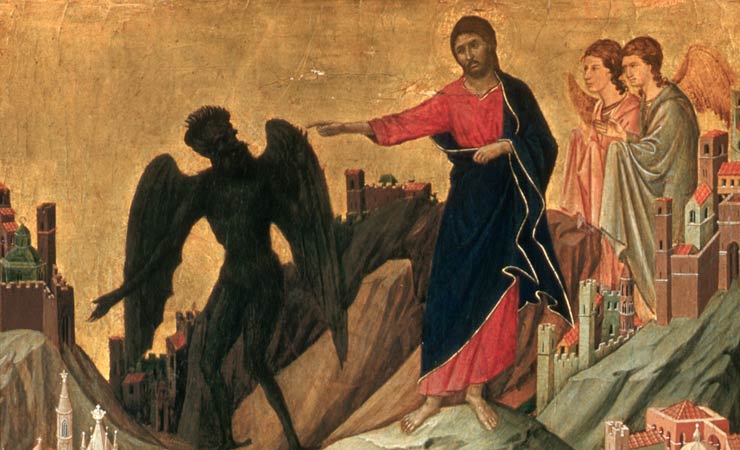We are
living today in a culture of accumulation. Since our desires are insatiable,
then, every day we ask for more. We look for more. We want more! Since others
want more food, then, they prefer a buffet than a value meal. Since others want
more fun and excitement in their married life, then, they prefer to have an
extra or more husbands and wives. Since others want to be more “confidently
beautiful by the heart,” then, they accumulate more beauty products from facial
cream to whitening soaps. Kung pwede lang
sana gamitin ang muriatic acid sa mukha, matagal na itong ubos sa mga
supermarkets. Since our wants never subside, every day we accumulate more and
more.
In our
first reading today, while Moses was tending the flock, he saw a bush though
burning was not consumed. Upon closer look, it was God speaking to him through
that burning bush about His plan of saving the Israelites out from the slavery
in Egypt. In our Gospel, Jesus tells us of a parable about the fig tree that
has been without fruit for three years already. Since the owner found nothing,
the gardener requested to give him another year to cultivate the tree so that
it may bear fruit in the future.
The two
images presented in our two readings today remind us of two realities in life
today. Some of us are like the burning bush. Despite the fire of pain and
suffering we have to go through in life, we continue to give light to others.
We continue to be of service to others. However, some of us are like the fig
tree. Since every day we wake up with a lot of problems, then, we become
unproductive. All that we do is to accumulate all for ourselves.
My dear
friends, as Christians, we are called to become like the burning bush; that
despite the fire, it continues to give light and is never consumed. Despite our
pain and suffering, we continue to be active and productive for others. Let us not be like the
fig tree that has been barren for three years. Let us not believe on the
saying, “if you can’t beat them, join them.” Let us not succumb to the evils of
the world and simply say, “what can we do?” Let us produce good works so that
we can introduce the truth of God in our world today.
This is
the purpose of the season of Lent – that we fix our gaze to the Crucified Lord.
Yes, if we look at the cross, we see a body heavily bruised and wounded.
However, do not also forget, that every time we look at the cross, we are
reminded of that scene on Calvary. Despite the agonizing pain and suffering,
Christ produced forgiveness by pardoning those who mocked at him. “Father,
forgive them for they do not know what they are doing.” Despite the agonizing
pain and suffering, Christ produced heaven by assuring the repentant thief,
“Today, you will be with me in Paradise.”
My dear
friends, the Galileans in our Gospel today died not because they were greater
sinners than the rest but because of Pilate’s malice. The Jerusalemites at the
fall of the tower of Siloam died not because they were greater sinners than the
rest but simply because they were at the wrong place and at the wrong time. The
parable of the barren fig tree, however, tells us that to be inactive and
unproductive in our Christians lives is the “greater sin.”
GMA’s
Pinoy Abroad once narrated to us the story of Emy who was a domestic helper.
After sometime, she was diagnosed to have suffered from a very serious illness.
Upon knowing about her wife’s sickly condition abroad, the husband, who was in
the Philippines, left Emy for good. And so, her two children were left to the
care of her mother. Despite her sickness and family condition, Emy until today
continues to work abroad. Despite her sickness, she continues to send some of
her income to her children. Despite her sickness, she continues to produce hope
and love.
How
about us? How about you? Are you a “burning bush” who produces life despite the
fire? Or are you like a “fig tree” who remains unproductive and inactive? We
are here on this world not in order to accumulate all for ourselves but to
produce good works of faith, hope, and love. Amen.


